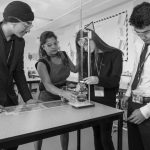Seema Malhotra highlights the shortage of laptop in Hounslow schools to parliament
Published: Friday, January 15th, 2021 at 1:27 PM
SEEMA MALHOTRA SPEECH IN WESTMINSTER HALL DEBATE 13/1/21
It is a pleasure to serve under your chairship, Dame Angela. I, too, congratulate you on becoming a dame in the new year’s honours, which was very well deserved. I thank and congratulate my hon. Friend the Member for Warwick and Leamington (Matt Western) on securing the debate and on his opening remarks, which covered all the issues that I believe need to be addressed. I also thank and congratulate my hon. Friends the Members for Ilford North (Wes Streeting) and for Mitcham and Morden (Siobhain McDonagh) on their work on this issue.
This is an urgent issue, and one that many colleagues have been talking about since the start of lockdown. Just yesterday I heard from one of my headteachers, who said that she was still waiting for the 114 laptops that the school had ordered and that were due to arrive last Wednesday. That is despite assurances given to Members of Parliament that laptops should arrive within 48 hours of being ordered. It is clear that the Government have inexplicably failed to plan ahead, once again putting kids last, not first, in this pandemic.
I am also disappointed that the Government seemingly took their foot off the accelerator in supporting kids to learn at home, following the easing of (the first) lockdown. They had a woefully slow start in March, which is on public record, with only 51,000 of the 200,000 laptops promised in March delivered by the end of May. I had to put in a freedom of information request to find that out. That was compounded by chaos in the supply of free school meals during lockdown, and a lack of guidance for teachers and support for parents.
Roll the clock forward nine months and it appears, on one level, that not much has changed. Incremental progress has been made, but it is utterly piecemeal and still far too confused. That has continued to be a hallmark of this Government. While the Department for Education should be making administrative decisions with clarity and forward planning, it instead lurches from crisis to crisis. It is not an excuse to say that the new variant took us by surprise, because a variant was expected. The NHS had sought to plan ahead; the rest of the Government clearly had not.
I do not want to hear today from the Government—I am sorry to be stern about this—about what has gone on that is to be applauded: the Oak National Academy, BBC provision, and Google, Microsoft, Amazon Web Services and others putting on learning options. Much of that learning also has to be focused and directed by teachers, and it has to be accessible. To do that, we need laptops and broadband sufficient for every child, not every household, because every child has to be online and has to be able to learn for as many hours as they need.
We need an honest and clear conversation about what is not going well, and how the Government need to tackle the remaining gaps at the speed and scale needed. First, the Government must have a proper plan to support hybrid and remote learning, because this issue is not going away. There has to be a long-term and sustainable solution for the provision of laptops and devices to all children who need them. That includes the broadband connectivity that will be required not just during the lockdown, but on an ongoing basis. The virus is going to be with us for at least this year and maybe well into the next academic year.
When I say every child, I mean every primary and secondary school pupil. It may be that they cannot get access because a sibling is using the home computer or laptop to study, or a parent might be using it to work at home. Those are the same families that might have used free wi-fi in libraries but, under the current circumstances and conditions, cannot do so. Children are also on cycles of lockdown and self-isolation. We have seen that all the way through since September. As many as 20% could have been off in one day due to the need to self-isolate.
Catching up is also vital, and I congratulate the Sutton Trust and others on the work they have done. Research by the National Foundation for Educational Research showed that at the start of last term, poorer pupils were three months behind on their learning, showing that the digital divide plays a huge part in poorer children falling behind. As well as keeping up, they also have to catch up. They need the time to be able to study in order to do that.
Secondly, laptop support must be at scale and of quality. I am surprised at the number of complaints from teachers about the spec and quality of laptops they have received, and the difficulties they had in reimaging them and getting their children online. Will the Minister outline the quality of provision the Government are providing, the tests and criteria they have set out, and how they are monitoring complaints received from schools, in order that those issues can be ironed out for further cycles?
The benefits are clear and it is heartening to read what children have to say. Last April, in the gap between the start of lockdown and laptops starting to arrive, local charity Hounslow’s Promise started a scheme to secure business and individual donations of laptops. That project is ongoing, working with the Hounslow Education Partnership of headteachers.
I want to quote Victoria Eadie, chief executive officer of the Tudor Park Trust, who has worked on the project from the start:
“During the first lockdown when we rolled out the first computers in April we saw significantly increased engagement in learning by pupils who previously had no access… They went from no engagement to medium or full engagement. It made a huge difference.”
The feedback from young people has also had an impact and has led to the project continuing. One pupil said:
“Before I received a laptop from school, I was struggling to complete work that was being sent by post. This meant it was difficult for me to complete my work and receive feedback. Once I received my laptop it was easier to do my work and access help online. I am very grateful for the laptop; my mum is also very grateful as my little brother also uses it for his learning.”
Another pupil said:
“It has been absolutely brilliant. I was stressed because I couldn’t do the work as I only had my phone. Now I can do the home learning.”
A third pupil said:
“This is a life saver because I travel between mum and dad and this makes it possible for me to keep up with my schoolwork in either home.”
Thirdly, we need a proper plan for connectivity. We need to tackle data poverty. That is not an unknown inequality, yet it is another social injustice that the pandemic has shone a light on, dividing rich and poor, and haves and have nots, whether young or old. Children who are unable to learn from and with their parents are learning far more slowly than their peers.
I believe there is a lot more to do to ensure that there is a sustainable solution. I appreciate and am grateful for the support from Three and others, which are now coming together with the Government to provide some free access to broadband during this period, but there has to be a solution that is ongoing and sustainable. We need a proper national schools connectivity scheme at low or no cost, so that schools can be confident that they will be able to support all their pupils to get online.
This is indeed an unsettling time for children, and it would be hugely beneficial and easily achievable for tech firms and broadband suppliers to help children stay connected to their school and their friends. Not only will it support their learning; it will positively impact on their confidence and wellbeing.
END

















































































